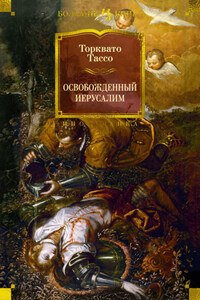PREFACE
"Fighting in Cuban Waters," although a complete story in itself, forms the third volume of the "Old Glory Series," tales depicting the various campaigns in our late war with Spain.
In "Under Dewey at Manila" we followed Larry Russell's adventures on board of the flagship Olympia during the memorable contest off Cavite; in "A Young Volunteer in Cuba" we marched and fought with Ben Russell in that notable campaign leading up to the surrender of Santiago; and in the present volume are narrated the haps and mishaps of Walter Russell, who joins Commodore Schley's flagship, the Brooklyn, and sails with the Flying Squadron from Hampton Roads to Key West, thence to Cienfuegos, and at last succeeds in "bottling up" Admiral Cervera's fleet in Santiago Bay. The long blockade and the various bombardments are described, and then follow the particulars of that masterly battle on the part of the North Atlantic Squadron which led to the total destruction of the Spanish warships.
Walter Russell's bravery may seem overdrawn, but such is far from being a fact. That our sailors were heroes in those days we have but to remember the sinking of the Merrimac, the Winslow affair, and a score of deeds of equal daring. "The hour makes the man," and the opportunity likewise makes the hero. Walter was brave, but he was no more so than hundreds of others who stood ready to lay down their lives in the cause of humanity and for the honor of Old Glory. Like his two brothers, his religious belief was of the practical kind, and he went into battle convinced that so long as he did his duty according to the dictates of his conscience, an all-wise and all-powerful Providence would guide him and watch over him.
The author cannot refrain from saying a word about the historical portions of the present work. They have been gleaned from the best available authorities, including the reports of Admiral Sampson, Commodore Schley, and a number of captains who took part in the contest; also the personal narratives of one man who was on board the Merrimac at the time that craft was sunk, and of a number who have made the Brooklyn their home for several years past, and who will probably remain on the pride of the Flying Squadron for some time to come.
In presenting this third volume, the author begs to thank both critics and the public for the cordial reception accorded to the previous volumes, and trusts that the present story will meet with equal commendation.
EDWARD STRATEMEYER.
Newark, N.J.,
March 1, 1899.
CHAPTER I
WALTER DETERMINES TO ENTER THE NAVY
"Well, Walter, I suppose the newspapers are going like hot cakes this morning."
"They are, Mr. Newell. Everybody wants the news. I ran out of 'Globes' and 'Heralds' before seven o'clock, and sent Dan down for fifty more of each."
"That was right. It's a windfall for us newsdealers, as well as a glorious victory to match. It makes me think of my old war days, when I was aboard of the Carondelet under Captain Walke. We didn't sink so many ships as Dewey has at Manila, but we sank some, and smashed many a shore battery in the bargain, along the banks of the Mississippi. What does that extra have to say?" and Phil Newell, the one-legged civil-war naval veteran, who was also proprietor of the news-stand, took the sheet which Walter Russell, his clerk, handed out.
"There is not much additional news as yet," answered Walter. "One of the sensational papers has it that Dewey is now bombarding Manila, but the news is not confirmed. But it is true that our squadron sunk every one of the Spanish warships, – and that, I reckon, is enough for one victory."
"True, my lad, true; but there is nothing like keeping at 'em, when you have 'em on the run. That is the way we did down South. Perhaps Dewey is waiting for additional instructions from Washington. I hope he didn't suffer much of a loss. Some papers say he came off scot free, but that seems too good to be true."
"The news makes me feel more than ever like enlisting," continued the boy, after a pause, during which he served out half a dozen newspapers to as many customers. "What a glorious thing it must be to fight like that and come out on top!"
"Glorious doesn't express it, Walter. Why, if it wasn't for this game leg of mine, and my age being against me, I'd go over to the navy-yard to-day and reënlist, keelhaul me if I wouldn't!"
"But what of the stand?"
"The stand could take care of itself – until the Dons were given the thrashing they deserve for making the Cubans suffer beyond all reason." Phil Newell threw back his head and gave a laugh. "That puts me in mind of something that happened when the Civil War started. A young lawyer in New York locked up his office and pasted a notice on his door: 'Gone to the front. Will be back when the war is over.' I'd have to put up something similar, wouldn't I?"
"I wish you and I could go together, Mr. Newell."
"So do I, Walter, but I'm over sixty now, and they want young blood. By the way, what of that brother of yours down in New York?"














